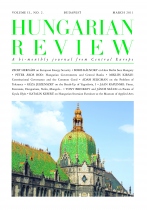ESTONIANS, FINNS, HUNGARIANS, TURKS AND MONGOLS
ESTONIANS, FINNS, HUNGARIANS, TURKS AND MONGOLS
Author(s): Jaan KaplinskiSubject(s): Language and Literature Studies
Published by: BL Nonprofit Kft
Summary/Abstract: In his book Jenseits von Gut und Böse, Friedrich Nietzsche claims that “the people native to the Ural-Altaic language region (where the concept of the subject is the most rudimentary) are very likely to look at the world differently and discover different modes and manners for themselves than those of the Indo-Germans or the Muslims.” Nietzsche’s ideas pose a kind of challenge for us, Estonians, Finns, Hungarians, Turks and Mongols. In fact, Nietzsche inquired about the possibility or even necessity of diverging philosophies dwelling in our languages. In Greek the word “philosophy” means “a love of wisdom.” Could Finno-Ugric wisdom be different from the wisdom of the Indo-Europeans? Does wisdom depend on language? Does the Hungarian word “bölcs,” or “wise” mean something other than the Greek word “sofia”? The notion of the word “philosophy” did not exist in China before the 20th century, despite the fact that many Chinese thinkers have explored topics similar to those of Western philosophers. In this regard, perhaps it would be better to discuss Finno-Ugric (Turkish or Mongol) thinking and communication instead of Finno-Ugric philosophy. An even more debatable issue is whether language is itself a means of thinking. Is there thinking without language, and if so, what is such thinking like? The highly debated question of linguistic psychology (whether language is prior to thinking or thinking is prior to language) is a correlated topic bearing the subject at hand. Does a Finn or a French person think in a different way? But what is thinking? In this respect Nietzsche might have been the first thinker to suggest that instead of “I’m thinking” (ich denke) we should perhaps say, “it makes me think,” or in German, “es dünkt mich.”
Journal: Hungarian Review
- Issue Year: II/2011
- Issue No: 02
- Page Range: 91-96
- Page Count: 6
- Language: English

